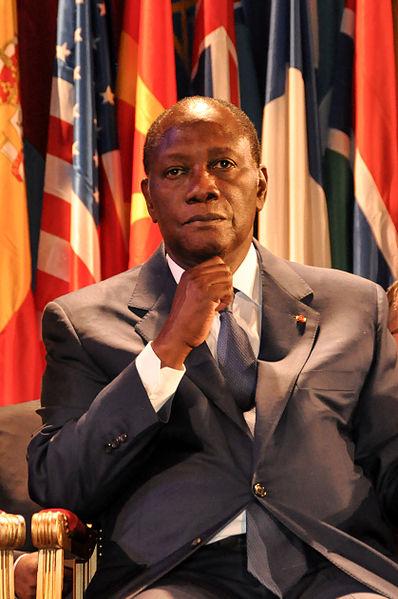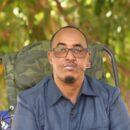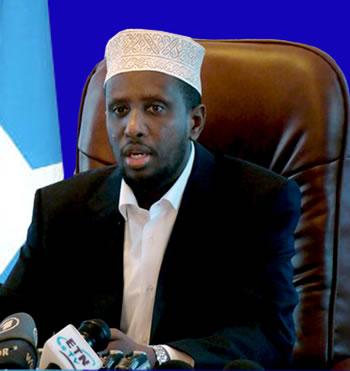Cote d’Ivoire must strengthen electoral institutions to avoid democratic back-slide in 2015 – By Mathias Hounkpe

At the end of March 2014, Ivorian President Alassane Outtara declared in Abidjan that “we are determined to ensure that [the 2015 elections] are transparent and truly democratic”. Although this goal is admirable, a number of challenges that existed during the disastrous 2010 presidential elections persist. These include an Independent Electoral Commission (CEI) and voter register in need of updating, electoral districts in need of redesign and an incoherent electoral legal framework. Thus, for President Ouattara’s declaration to prove more than merely aspirational or rhetorical, these challenges must be resolved before 2015.
Challenges Necessitating Electoral Reform
Problems with the composition of the CEI and the voter register are two inevitable sources of dispute among political actors. Most concerning is the lack of legal mandate within the current CEI Commissioners. The current composition of the CEI still reflects the political configuration provided for in the April 2005 Pretoria Agreement. This was a contract signed between the government and rebel groups during the 2002-2010 crisis, in which the now defunct Forces Nouvelles and the signatories of the Linas-Marcoussis Agreement are represented. Under the Pretoria Agreement, however, the mandate of the current CEI members ended with the conclusion of the 2010 general elections. Therefore, at the very least, the CEI must be reconstituted.
Technical and budgetary constraints have prevented annual updating of the voter register, as required by the electoral code. Given that the register has not been revised since the 2010 presidential elections, it is therefore imperative that weaknesses inherited from the 2008-2009 voter registration process – such as the estimated 800,000 citizens not included in the voter register – are corrected. It is also necessary to include both citizens who have since reached the voting age of 18 and persons displaced by years of conflict who have since returned home. A far more complex issue – and one likely to revive past wounds – is accounting for the new voters who, as a result of the enactment of a law in September 2013 that allows naturalization by declaration, are now eligible to vote. Including these new eligible voters is essential to avoid disenfranchisement and may require extending the voter registration period.
Beyond the voter register and the composition of the CEI, a major source of dispute and misapprehension is the legal framework for elections, which currently consists of a collection of legislative acts, political agreements and ad hoc regulations. Drawing lessons from the post-2010 election crisis, a central goal of the legislative reform process should be to re-examine and clarify the provisions of the Constitution and the Electoral code relating to the mandates of the CEI and the Constitutional Council with regard to electoral dispute settlement and the proclamation of the results. Any new electoral legal framework must reinforce the independence of the CEI, assure the mechanisms to prevent electoral fraud and guarantee fair electoral districting.
Even in countries not in transition, these questions are difficult to resolve. A complicating factor in Cote d’Ivoire is that the largest opposition party, the Front Populaire Ivoirien (FPI), which won 38% and 46% of votes during the first and second rounds of the 2010 presidential elections respectively has no representation in any state institutions. Without reviving interparty dialogue and an inclusive electoral reform process, there could be a boycott of the 2015 election, marring its legitimacy and risking a repeat of the 2010 electoral violence.
Stakeholder responsibility
Also at risk is the credibility of the ruling coalition, which must be more cognizant of its role and obligations in ensuring that these challenges are resolved. Realistically, this means making certain concessions, such as securing greater involvement of opposition parties in election management, and ensuring that all electoral reform processes and the elections themselves are inclusive and participative. This includes not repressing the voices of civil society and the media, which are vital for enhancing the quality of the electoral process.
To assure their own survival and credibility, as well as for the stability of the country, opposition parties may make more progress by taking a constructive engagement approach that avoids extreme “all or nothing” demands and insistence on unrealistic reforms as the only condition for their participation in the electoral process. Prioritizing demands for electoral code reform, clarification of certain legal provisions (for instance, eligibility criteria for appointment as an electoral commissioner), and a renewed voter register would help make the process participative and inclusive and would contribute to the overall transparency and credibility of the elections.
In the absence of external election result certification during the 2015 elections, as was done by the UN in the 2010 elections, civil society has a larger role to play than merely sensitizing voters and observing elections. CSOs’ significant contribution starts now. And it starts by advocating for a restructured and balanced CEI, updating the voter register, and amendments to election laws that increase the independence of the CEI and clarifying roles in the resolution of electoral disputes. Organization, credibility and innovation among CSOs, which are currently lacking, will be crucial for making this necessary contribution.
External actors, including regional, continental and international organizations, must further support the ongoing interparty dialogue process in Cote d’Ivoire through credible mediation that guides parties in devising short and long-term strategies for addressing the plethora of challenges. Development partners must help CSOs synergize their efforts according to their competences. They must also be willing to support sensitization efforts, such as on the requirements and implications of the new nationality law for voters, and other actions like implementing early warning initiatives, mediation, and long-term monitoring.
It is ultimately in the hands of Ivorians to ensure, through electoral reforms and the quality of election management, that the elections are credible in the eyes of the greatest number of citizens and that the results are widely accepted. Given the challenges and limited time leading up to the 2015 elections, political actors will inevitably have to compromise if Cote d’Ivoire stands a chance of consolidating peace and the country’s “new” democracy.
Mathias Hounkpe is OSIWA’s Political Governance Manager and Ibrahima Amadou Niang, OSIWA’s Guinea Country Office Manager. Follow Mathias at @Coffi_12 and Ibrahima at @IbrahimaANiang





